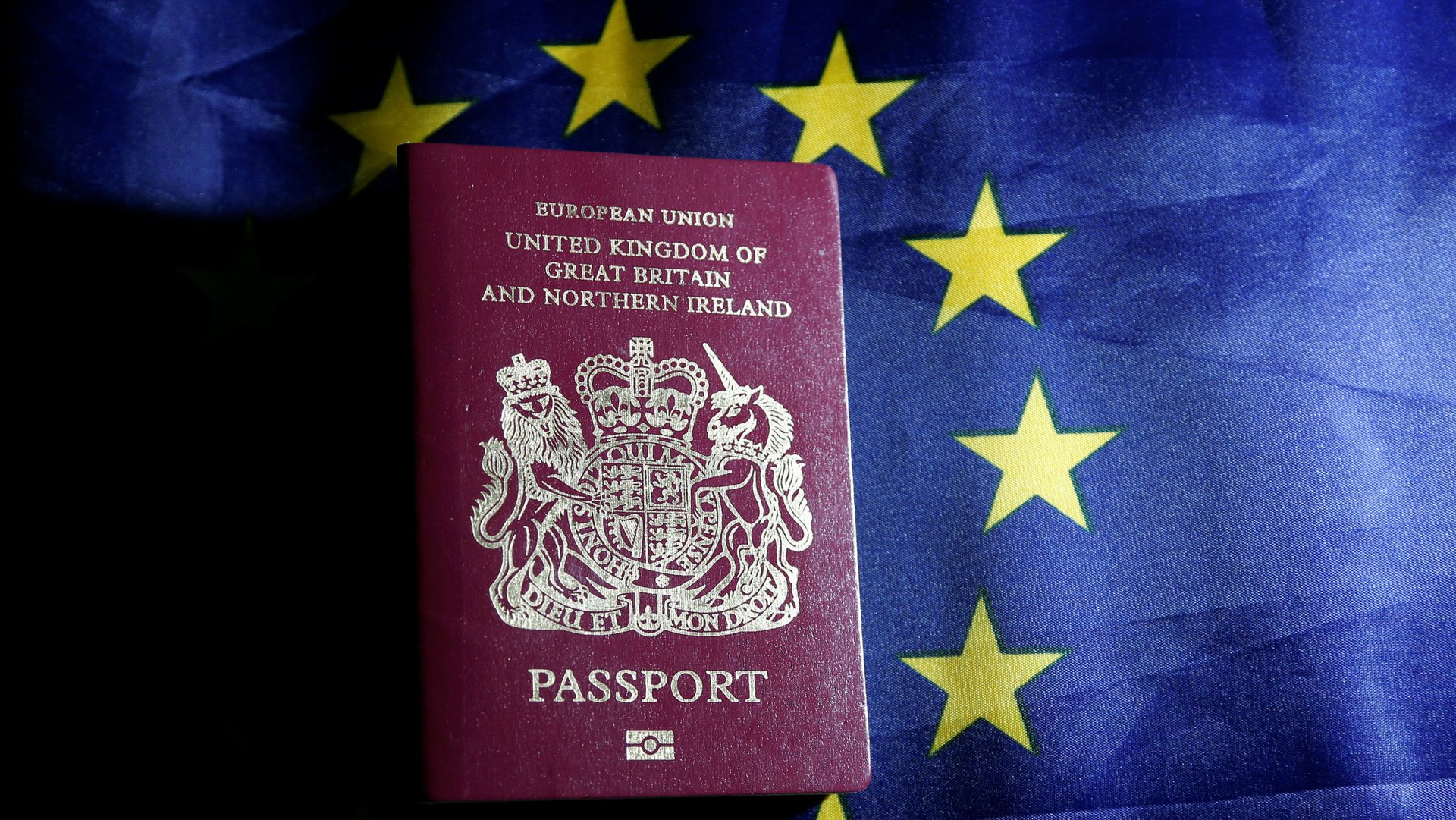In the year of the Brexit vote, Brits became German citizens in droves
Although Britain voted to leave the European Union, a number of Brits are applying to retain their EU citizenship by getting passports from countries that will remain members of the bloc, according to the latest data from Eurostat (pdf).


Although Britain voted to leave the European Union, a number of Brits are applying to retain their EU citizenship by getting passports from countries that will remain members of the bloc, according to the latest data from Eurostat (pdf).
In February 2016, Britain’s then-prime minister announced a referendum on EU membership, and in June the UK voted for Brexit. Over the course of that year, the number of Brits granted citizenship of another EU country more than doubled from 2015, to 6,555. Overall, EU members—including the UK—granted citizenship to nearly 1 million people in 2016. Around 12% of those people were already citizens of another EU member state.
Germany granted the most citizenships to UK nationals in 2016, with more than 2,700, a huge jump from previous years.
Germany has the most powerful passport in the world, according to the Henley Passport Index, an annual ranking of how many countries holders can travel to visa-free or with visa-on-arrival.
Britain is set to leave the EU officially on March 29, 2019. A transition period that keeps many of the same rules in place—including the rights of EU citizens to live and work in other member states—will remain in place through the end of 2020. British citizens who want to be sure of retaining these rights will continue to apply for citizenship elsewhere in the bloc.